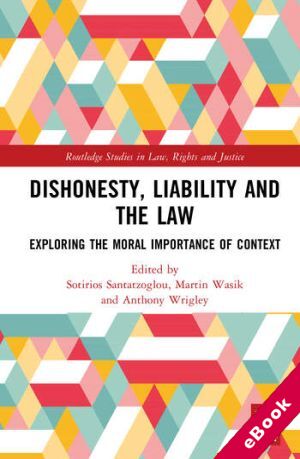
The device(s) you use to access the eBook content must be authorized with an Adobe ID before you download the product otherwise it will fail to register correctly.
For further information see https://www.wildy.com/ebook-formats
Once the order is confirmed an automated e-mail will be sent to you to allow you to download the eBook.
All eBooks are supplied firm sale and cannot be returned. If you believe there is a fault with your eBook then contact us on ebooks@wildy.com and we will help in resolving the issue. This does not affect your statutory rights.
In 2017, in Ivey v Genting Casinos, the Supreme Court judged that the dishonesty test is objective and should be the single one in use for any area of law. The judgment sparked some criticism regarding the inflexibility of an objective test. The subsequent 2020 Court of Appeal judgment in R v Barton confirmed the objective test in Ivey. However, little dedicated discussion and analysis of the dishonesty test has subsequently taken place, leaving a growing concern that the one currently in use may not be suitable for determining dishonesty in all contexts. This inter-disciplinary collection challenges the idea of the single objective test by considering the issue of context in defining dishonesty.
The volume is divided into three parts. The first focuses on the analysis of the concept of dishonesty and the dishonesty test, both in relation to context and its impact in determining whether or not liability arises. In the second part, the focus is on contexts of public and private dealings where dishonesty can be the reason to place liability, or where its implications should be modified in order to limit liability. Finally, in the third part, the focus is on the context of healthcare practice and its interface with the conceptual dichotomy of honesty/dishonesty.
The conclusion draws together shared themes, notably the issues of fairness and justice, that arise from the work to demonstrate the definitional vacuum in the law on dishonesty.
The book will be of interest to academics, researchers, policy-makers and regulators working in law, ethics or in areas of professional regulation and misconduct, especially medicine, nursing, student academic misconduct, and politics. Similarly, there will be appeal to those working in relevant professional regulatory areas, such as law, healthcare, and sports governance.